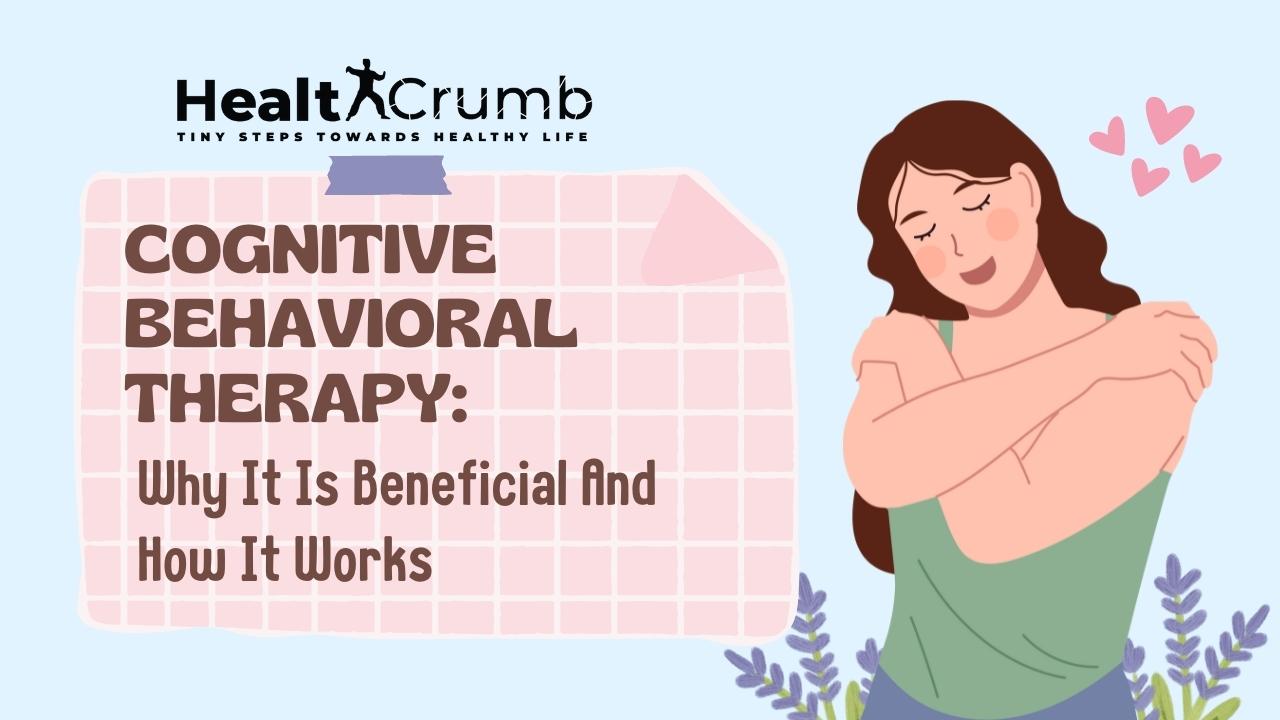Cognitive behavioral therapy can be a great tool for coping with negative feelings or thoughts that are preventing you from functioning to the best of your abilities. It’s a talking therapy, which means it doesn’t require medication, that has been shown to be very effective in positively affecting mental health and well-being. Read this article to learn what it is and how it could help you!
What is Cognitive Behavioral Therapy?
Cognitive behavioral therapy (CBT) is a type of talk therapy that can help you manage your mental health. It’s based on the idea that your thoughts, feelings, and behaviors are all connected. CB therapy has been shown to be effective in treating a variety of mental health conditions, such as depression, anxiety, post-traumatic stress disorder (PTSD), and eating disorders. It can also help with other issues, such as chronic pain and substance abuse.
During CBT, you work with a mental health professional to identify negative thoughts and beliefs that may be causing problems in your life. You then learn how to replace these negative thoughts and beliefs with more positive ones. CBT can be done in individual or group sessions. If you’re considering CBT, it’s important to find a therapist who has experience treating the specific condition you’re dealing with. Be sure to ask about their training and credentials.
How is CBT different from other types of therapy?
Cognitive Behavioral Therapy (CBT) is a type of therapy that focuses on helping individuals change their thoughts and behaviors in order to improve their overall well-being. Unlike other types of therapy, CBT specifically focuses on the present and uses a more hands-on approach. CBT has been shown to be an effective treatment for a variety of mental health conditions, such as depression, anxiety, eating disorders, and substance abuse. It can also help people who are struggling with day-to-day stressors and issues.
One of the things that makes CBT unique is its focus on helping people identify and change negative thought patterns. This is done through a process of self-exploration and discovery. Once negative thoughts are identified, individuals can then start to Challenge and reframe them.
CBT has been shown to be an effective treatment for a variety of mental health conditions
The Function of Emotions, Thoughts and Behaviors
It’s no secret that our emotions, thoughts and behaviors are interconnected. They all affect each other and can influence our overall well-being. That’s why cognitive behavioral therapy (CBT) is such an effective treatment for mental health conditions like anxiety and depression.
CBT is a type of talk therapy that focuses on helping people change their negative thought patterns and behaviors. It’s based on the idea that our thoughts influence our emotions and our behavior. So, if we can change our thinking, we can change the way we feel and behave. CBT has been proven to be an effective treatment for many mental health conditions. Studies have shown that CBT can help reduce symptoms of anxiety, depression, post-traumatic stress disorder (PTSD), eating disorders, substance abuse disorders and more.
CBT is usually done with a therapist in individual or group sessions. During CBT sessions, you will work with your therapist to identify your negative thought patterns and beliefs. You will also learn how to challenge these negative thoughts and replace them with more positive ones. Additionally, you will learn new coping and problem-solving skills to help you deal with difficult situations in a healthy way.
What Do I Need To Know?
Cognitive behavioral therapy (CBT) emphasizes the role of thoughts in how we feel and what we do. CBT is based on the belief that our thoughts cause our feelings and behaviors, not external things, like people, situations, and events. CBT can be used to treat a wide range of mental health conditions, including depression, anxiety, eating disorders, substance abuse, and more. It can also be used to help people manage day-to-day stressors and improve their overall wellbeing.
If you’re considering CBT for yourself or a loved one, here’s what you need to know about how it works and the benefits it can offer.
The Benefits of CBT
Cognitive behavioral therapy is an effective treatment for a variety of mental health conditions. CBT can help you manage your symptoms and improve your overall well-being.
The benefits of CBT include:
- Relief from symptoms of anxiety and depression
- Improved sleep quality
- Increased ability to cope with stress
- Enhanced self-esteem and confidence
- Greater satisfaction with life in general
If you are struggling with mental health issues, consider seeking out cognitive behavioral therapy. CBT can be an effective way to improve your quality of life.
Who Can Benefit From The Format of CBT?
Cognitive behavioral therapy, or CBT, can be an extremely effective form of treatment for a wide variety of mental health issues. The format of CBT is usually short-term, focused on specific goals, and highly structured. Because CBT is so goal-oriented, it can be a very good choice for people who are struggling with specific issues or problems and who want to see results quickly.
CBT has been shown to be effective in treating disorders such as anxiety, depression, eating disorders, substance abuse, and post-traumatic stress disorder. It can also be helpful in treating other psychological issues such as low self-esteem, sleep problems, and relationship difficulties.
People who benefit most from CBT are those who are willing to engage in the process and put in the work required. CBT is not a quick fix – it requires effort and commitment from both the therapist and the person receiving treatment. However, for those who are willing to commit to the process, CBT can be an incredibly helpful tool for achieving lasting change.
How to find a good CBT Specialist?
There are a few things to keep in mind when looking for a CBT specialist. First, make sure the therapist is licensed and has experience treating people with CBT. Second, ask about the therapist’s success rates with CBT. Third, make sure the therapist is a good fit for you personally. You should feel comfortable talking to the therapist and feel like they understand your needs.
If you’re not sure where to start, you can ask your primary care doctor for a referral to a CBT specialist. You can also search online for therapists in your area. Once you’ve found a few potential therapists, contact them and ask about their rates, qualifications, and availability. In addition, ask each therapist whether they have experience with CBT and what methods of therapy they use. Finally, let them know the problem you’d like to address. This will give them the chance to reassure you that CBT is the best approach for your circumstances.
Conclusion
Cognitive behavioral therapy is an effective treatment for a variety of mental health issues. It can help people learn to manage their thoughts, emotions, and behaviors in more positive ways. Think of it as training your mind, just as you would train your body. People with anxiety, depression and other issues associated with the symptoms of serious psychological disorders can benefit from cognitive behavioral therapy.
A psychologist or psychiatrist will assess a person’s mental state and recommend a course of treatment based on the diagnosis. They may prescribe medications or use psychotherapy at first but they are likely to eventually prescribe medication regardless of whether other treatments have been tried. It might be difficult to find someone to perform cognitive behavioral therapy without a prescription from one of these professionals, so this is the most likely way that CBT will actually help sooner rather than later.



